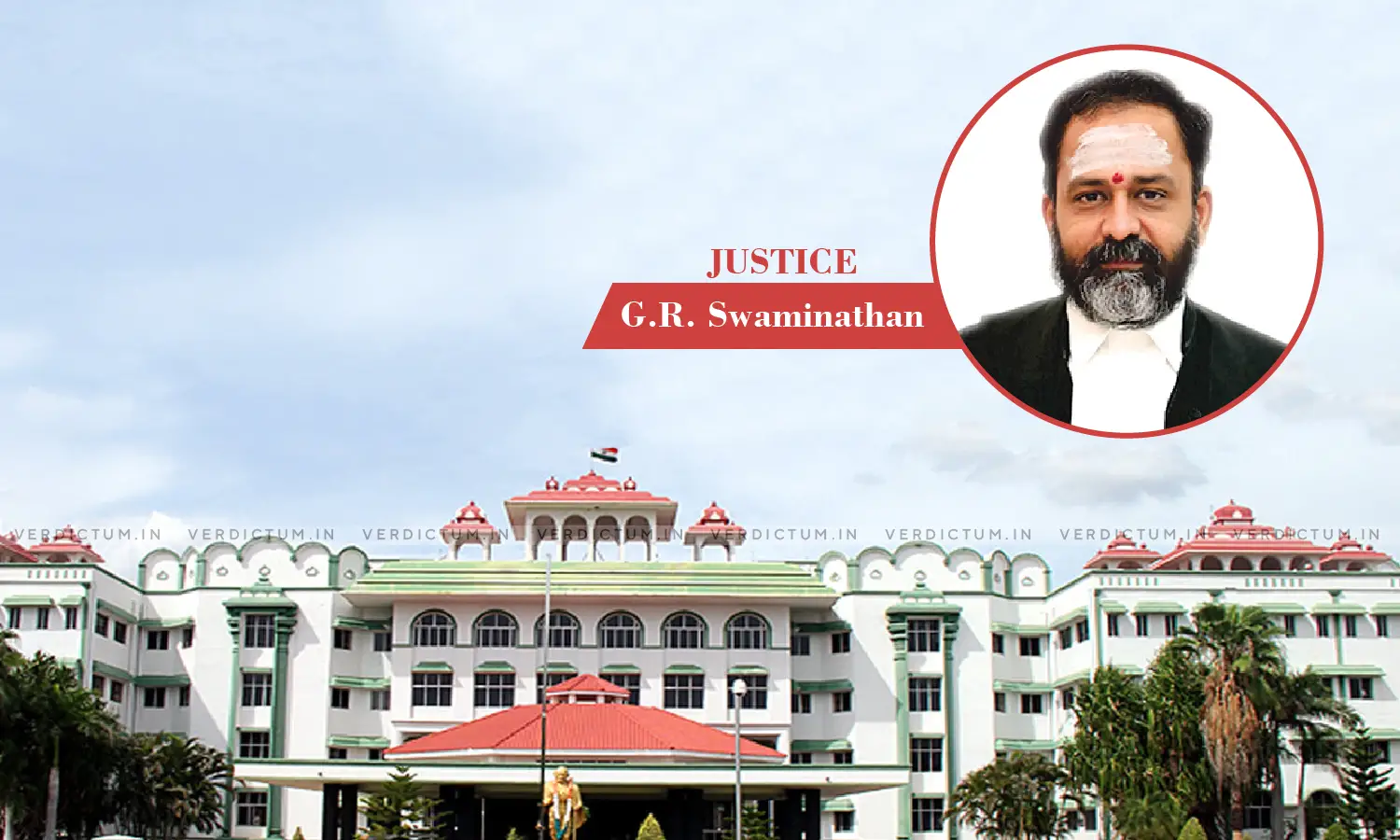Have A Right To Express Grievance: Madras HC Protects Bank Employees' "Right To Vent" On Private WhatsApp Groups, Quashes Charge Memo
The Madras High Court recently held that charges based on information gleaned from private WhatsApp groups, through unauthorized means should not be framed. It recognized the "right to vent," allowing employees to express grievances, and suggested that the management's intervention is warranted only if the organization's image is adversely affected.
The Bench of Justice G.R. Swaminathan observed that:
“There is something called “right to vent”. Every employee or a member of an organization will have some issue or the other with the management. To nurture a sense of grievance is quite natural. It is in the interest of the organization that the complaints find expression and ventilation. It will have a cathartic effect. If in the process, the image of the organization is affected, then the management can step in but not till then.”
The petitioner, an Office Assistant, had joined Pandiyan Grama Bank in 2013, which later merged with Pallavan Grama Bank to become Tamil Nadu Grama Bank. The petitioner, now at the Arumuganeri Branch, Thoothukudi Region, is a trade union activist with the Tamil Nadu Grama Bank Workers Union. The petitioner faced disciplinary action, filed writ petitions, and was suspended on August 05, 2022 for objectionable WhatsApp messages but had the suspension stayed on August 18, 2022. After revoking the suspension, an impugned charge memo was issued, prompting the present writ petition, where the petitioner sought relief from the charge memo. The respondent, the bank, argued that the petitioner's messages were defamatory, constituting misconduct per conduct rules and instructions, rendering the writ petition non-maintainable. The respondent sought dismissal.
Advocate D. Geetha appeared for the Petitioner and Advocate N. Dilipkumar appeared for the Respondents.
The argument made by the Respondent’s counsel was that the employees were required to comply with the instructions outlined in Circular No.82/2019-20 dated July 23, 2019. The contention was that the petitioner violated this circular, making Regulation 39, which imposed penalties for breaches, applicable. The Court examined the situation where the petitioner posted a message in a WhatsApp group, clarifying that WhatsApp is an end-to-end encrypted communication platform, allowing private sharing among group members. The petitioner had started the WhatsApp group for union activities and communication.
The issue before the Court was whether the circular can regulate activities on this private platform. The Court adopted the approach from Bharathidasan University Vs. AICTE (2001) 8 SCC 676, emphasizing that regulations should stay within defined limits. It stated that while it won't strike down the circular, it can read it down to align with the law. The Industrial Disputes Act, 1947, prohibits unfair labor practices, and the Court highlighted the right of employees to organize and negotiate with management. It acknowledged Article 19(1)(a) of the Constitution guaranteeing freedom of speech and expression, though subject to reasonable restrictions.
The Court drew a comparison between government servants and private citizens, emphasizing that even government employees have certain fundamental rights.
“When even prisoners have fundamental rights and it has been declared by the Apex Court that Part III of the Constitution does not stop at the prison gates, it would be ridiculous to suggest that the moment a person becomes a bank employee, he has to bid good-bye to Article 19(1)(a). The fundamental right insofar as it applies to the petitioner might have lost a bit of sheen but its core would remain with all vigor.”
It discussed the concept of privacy as a fundamental right, even for groups, while noting that the sharing of illegal content or conspiracy to commit unlawful acts would be subject to regulatory measures.
The Court cited various judgments that supported the right of employees to express opinions without violating conduct rules, as long as it doesn't harm the organization's collective interests. It concluded that the petitioner's message, shared in a private WhatsApp group, cannot be deemed a misconduct, especially given that the petitioner unconditionally apologized.
“the message posted by the petitioner cannot be said to attract the Conduct Rules laid down by the management. Any employee is bound to show courtesy to the superior officer in his dealings. But while gossiping privately with a fellow employee, the officer may come in for all kinds of criticism.”
The Court quashed the charge memo, stating that charges based on information gleaned from private conversations through unauthorized means should not be framed. The Court allowed the writ petition without costs.
Cause Title: A. Lakshminarayanan v. The Assistant General Manager – HRM & Ors.
Click here to read/download the Order












